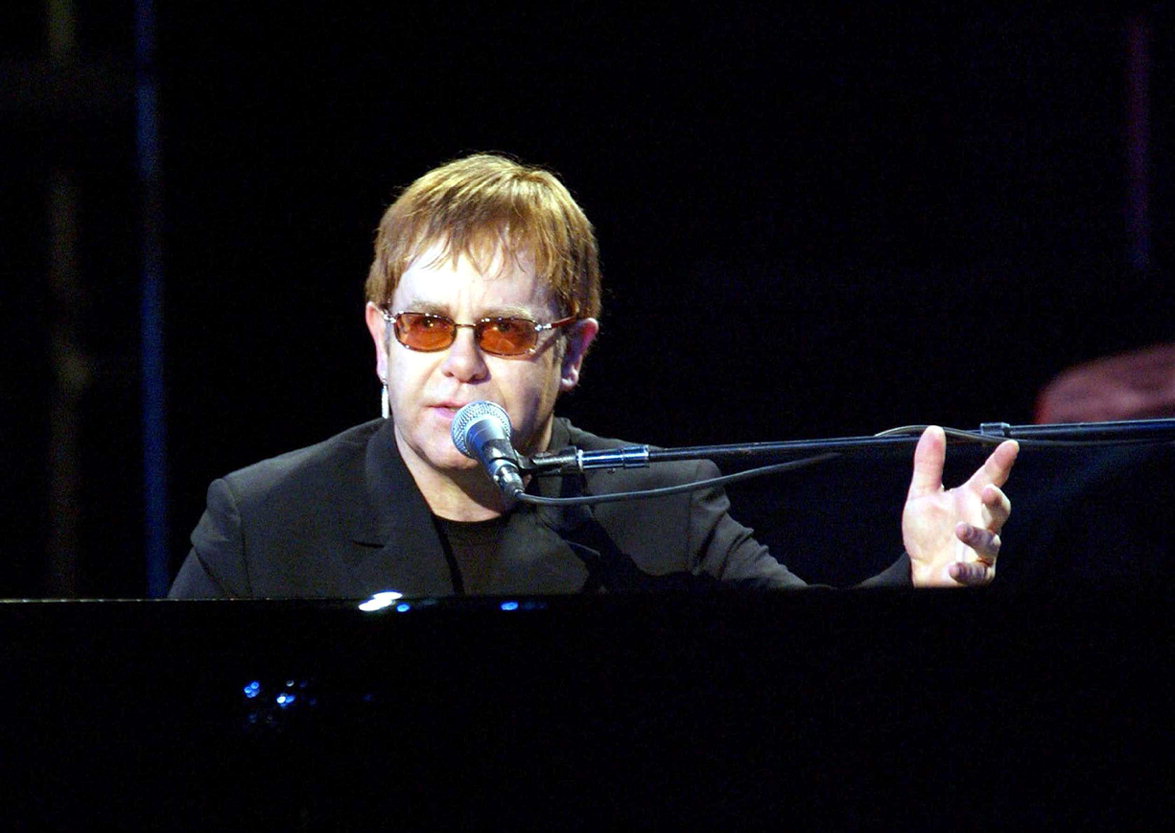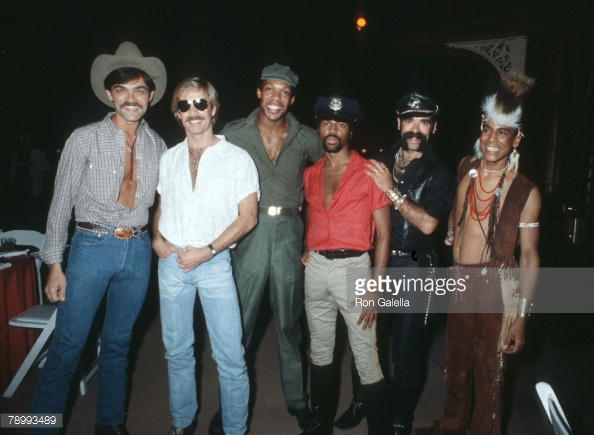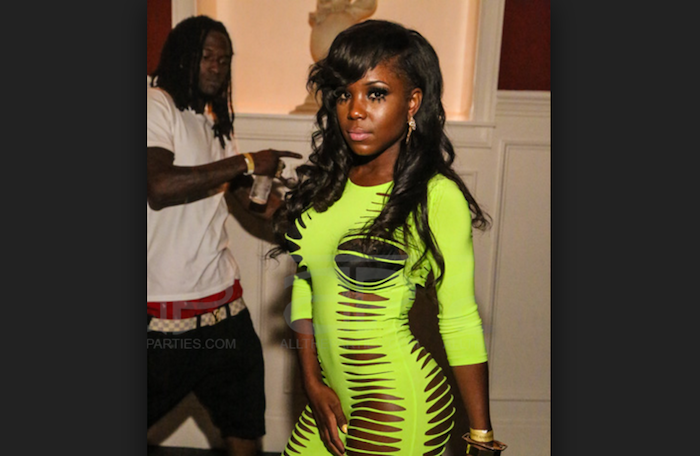4. The Village People (Alexander Briley, Randy Jones, Felipe Rose)
In 1977 openly gay French music producer Jacques Morali was visiting a New York City gay bar, when he spotted Felipe Rose working as a go-go dancer dressed in full Native American headdress and attire. Morali was currently working with the talented singer Victor Willis, whom he dubbed “the young man with the big voice” and after spotting Rose, a light bulb went off in Morali’s head and he posted an ad in a music trade magazine that read: “Macho Types Wanted: Must Dance And Have A Moustache.” Along with Willis (the police officer and heterosexual) and Rose (the Native American, openly gay), Morali brought on Randy Jones (the cowboy, openly gay), Glen Hughes (the biker, heterosexual), David Hodo (the construction worker, heterosexual), and Alex Briley (the soldier, openly gay). Hoping to target gay men’s fantasies by depicting popular gay fantasy personas, Morali created The Village People, a name he chose in reference to New York City’s Greenwich Village, which at the time was known for its substantial gay population. As a group, The Village People’s churned out hits like “Go West,” “In the Navy,” and “Macho Man,” which put them on the charts and brought them mainstream attention, but it was their classic hit “Y.M.C.A.” that made them one of the most successful groups of the disco era, becoming the first gay group to have a No. 1 hit in the UK (the second being Frankie Goes to Hollywood’s “Relax”). Women loved them for the “men-in-uniform” fantasy they fulfilled, straight men appreciated the Americana themes in their music, and gay men heralded them for their visibility and the courage they gave others to be openly gay. In regards to their positive impact on helping gay youth come out, Rose once told The Hour, a Montreal newspaper “People always tell me, ‘You helped me come out.’ I always reply, ‘You did that on your own.’.”




































Discussion about this post